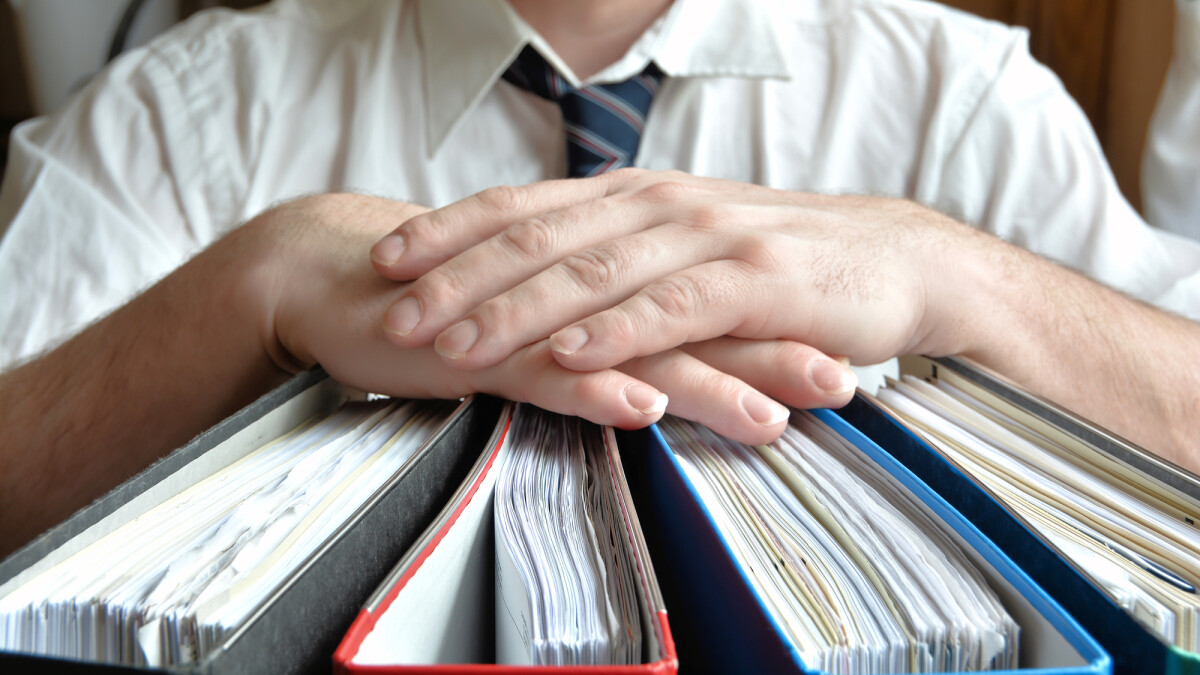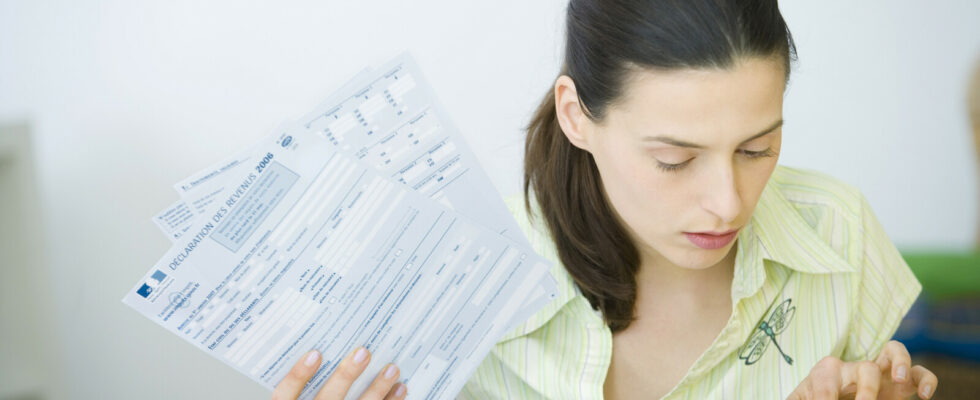You need invoices and receipts not only for refunds when filing your tax return. It can also be expensive for you if certain documents are missing.
You have to keep certain documents for your tax return, even if the tax office may not want to see them. (Source: imagepointfr/depositphotos.com)
Where should all the paperwork for the tax return go? Definitely put it away. You should keep invoices, receipts, payroll tax slips and many other documents for a certain period of time. Not only are they important for tax refunds, in case of doubt they can even save you from having to pay additional money or even save you from legal proceedings.
The irony is that you basically don’t need a single receipt or invoice to file your tax return. Although the information from your income tax notice is important, you do not have to include a printed copy with your return. In principle, you can (and should) submit your tax return without it.
Tax return with EÜR: Who can, who has to?
Professional groups and boundaries
Anyone who submits their tax return to the tax office as an entrepreneur or freelancer has to take a few things into account. We’ll show you who the simple form of the EÜR is suitable for.
That was not always so. Until a few years ago, the tax office required receipts and invoices for all types of costs that were claimed in the tax return. The law on the obligation to retain documents has been in effect since 2017. This means that you no longer have to enclose receipts and invoices as evidence with your tax return. So you don’t need any documents at all?
What documents do I need for the tax return?
In order to fill out your tax return, you can actually do without any additional documents. Although of course they give you an overview of your expenses and you can be sure that you don’t enter incorrect numbers. And that’s exactly what could become a problem for you later, because: The tax office can subsequently demand receipts and invoices from you after you have submitted your tax return.
The obligation to retain receipts releases you from attaching receipts etc. directly to your tax return, but it obliges you to keep this evidence and send it to the tax office upon request. This includes, but is not limited to, invoices, receipts, contracts, bank statements and other financial evidence.

Tax returns are generally voluntary for employees, students, pensioners and trainees. It is still worth it, as you can often expect high tax refunds. (Source: HayDmitriy / depositphotos.com)
The tax office can subsequently request documents
Whether and in which years the tax office requests further documents from you depends on the significance of the matter. For example, if you are submitting your first tax return, your return is very different from the previous year, there are generally any special anomalies or there are noticeable tax consequences, it is very likely that the tax office will contact you.
In this case: don’t panic. You will then not be placed under general suspicion of having provided false information. If you send the evidence to the tax office within the statutory deadline, you have no fear of any consequences.
The easiest way is to send your receipts digitally to the tax office. With tax software, all you have to do is photograph and upload your receipts, which is particularly practical. Many such tax programs even have an archive in which you can collect and store your documents digitally throughout the year. This means you can avoid the flood of paper from receipts and invoices.
Obligation to retain receipts: What is important for the tax return?
Basically, we advise you to keep all relevant receipts. The following documents are particularly relevant for the tax return and possible refund:
- Proof of advertising expenses (Travel costs, work equipment, home office cost statements, etc.)
- Evidence for special editions (Donations, insurance payments, Riester contract, etc.)
- Evidence of craftsmanship (Construction work, renovation work, etc.)
- Evidence of household-related services (household help etc.)
- Evidence of exceptional loads (Medical expenses etc.)
How long should you keep documents for your tax return?
There is no exact period of time for how long you have to keep your receipts. However, you should keep them for at least one month after receiving the tax notice for the corresponding year. According to the location, the objection period ends one month after receipt.

If you don’t want to deal with dozens of folders for your documents, you can also save them digitally in tax software. (Source: heiko119/depositphotos.com)
But it’s better if you keep your receipts for years to come. On the one hand, you can assert further claims for some receipts over a longer period of time or you generally have to keep them for a certain minimum period of time, such as craft invoices (for craft invoices, at least two years). You should even keep invoices for 30 years due to the obligation to pay compensation.
On the other hand, your objection period can be suspended under certain circumstances and reinstated later, for example after an exceptional case of illness. Then your objection deadline will be pushed back and you may need your documents many months after the actual tax assessment.
Annotation: In contrast to employees, trainees, students and the like, self-employed people and traders are bound to statutory retention periods of six or ten years, depending on the relevant documents.
On the next page we will address the question of what alternatives you have if you cannot send documents to the tax office for various reasons.
Don’t miss anything with this NETWORK WORLDNewsletter
Every Friday: The most informative and entertaining summary from the world of technology!
